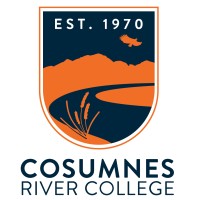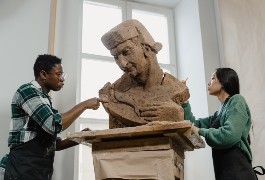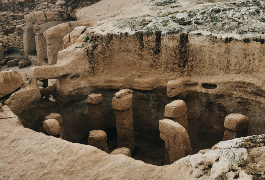Associate in Arts in Anthropology for Transfer Degree (Associates)
Consumnes River College
Sacramento, CA
The Associate in Arts in Anthropology for Transfer Degree (AA-T) is designed to meet common lower-division requirements for a major in Anthropology at California State University (CSU) campuses by completion of 60 transferable semester units with a minimum 2.0 GPA, to include either the California State University General Education Breadth pattern or the Intersegmental General Education Transfer Curriculum; students must earn a grade of C or better in all the courses for the major as described in the Required Program.
Anthropology is the study of humans. Anthropologists study our species throughout time; focusing on our diverse modern culture and cultural adaptations, our biological classification as a species and our inclusion in the Order Primates, and our species' past developments, including our first steps to our first civilizations. The goal of Anthropology is to study the similarities and differences in biological and cultural adaptations and features across the globe throughout our human history.
Anthropology is a holistic discipline, which means that anthropologists study all aspects of humans and our behavior. The field of Anthropology has been broken up into four main sub-fields: Cultural Anthropology, Biological Anthropology, Archaeology and Linguistics. Cultural Anthropology is concerned with the study of human culture and its variations across time and space. Biological Anthropologists aim to study our species from a biological perspective- examining our DNA, our relationship to our closest animal relatives, the primates and the fossil evidence of our earliest human ancestors. Archaeology is the study of our past, focused specifically on reconstructing past behavior by looking at objects used by past people. Linguistic Anthropologists study human language and communication.
This degree offers courses that satisfy lower-division General Education requirements in both the physical and social sciences, providing students with a solid foundation in anthropology as well as the standard prerequisites for upper-division coursework leading to the baccalaureate degree. Students planning to transfer to a four-year school with a major in Anthropology should consult the lower division requirements at the university they plan to attend.
Student Learning Outcomes
Upon completion of this program, the student will be able to:
🗸 DEMONSTRATE UNDERSTANDING OF THE PROCESSES OF SCIENCE, THE SCIENTIFIC METHOD, AND THE RELATIONSHIP BETWEEN SCIENTIFIC RESEARCH AND ESTABLISHED KNOWLEDGE. (PSLO 1)
🗸 CLEARLY EXPRESS SELF WHEN WRITING OR SPEAKING ABOUT ANTHROPOLOGY DEMONSTRATING KNOWLEDGE OF BASIC ANTHROPOLOGICAL TERMINOLOGY AND UNDERSTANDING MAJOR ANTHROPOLOGICAL CONCEPTS. (PSLO 2)
🗸 DEMONSTRATE BOTH CONTENT KNOWLEDGE AND TEST-TAKING SKILLS WHEN COMPLETING ESSAY, OBJECTIVE AND MULTIPLE CHOICE EXAMS. (PSLO 3)
🗸 UTILIZE APPROPRIATE FIELDWORK TECHNIQUES FOR ANTHROPOLOGY. (PSLO 4)
🗸 EVALUATE ANTHROPOLOGICAL DATA, DRAW REASONABLE CONCLUSIONS, RECOGNIZE THE ETHICAL IMPLICATIONS OF THESE CONCLUSIONS AND APPLY THESE CONCLUSIONS TO PERSONAL, COMMUNITY AND SCIENTIFIC PROBLEMS. (PSLO 5)
🗸 EMPLOY INFORMATION-GATHERING TOOLS TO INVESTIGATE ANTHROPOLOGICAL IDEAS. (PSLO 6)
Career Information
Anthropologists with baccalaureate or graduate degrees work as archaeological technicians or project directors for private, state or federal organizations, museum management, forensic specialists in police departments and crime labs, primatology and zoo curation, teaching, consultant or analyst for private, government or educational institutions, non-profit organizations, information technologies, tourism, public health services, and social work.








